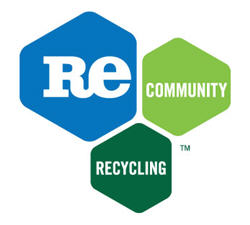
Delaware hopes to create roughly 80 new green jobs in early 2013 by investing in a state-of-the-art recycling facility.
When the Deepwater Horizon drilling rig exploded April 20, 2010, residents feared that their Gulf of Mexico shores would be inundated with oil. And while many wetland habitats and wildlife were oiled during the three-month leak, the environmental damage to coastal Louisiana was less than many expected, in part because much of the crude never made it to the coast.
The Southeastern Pennsylvania Transportation Authority, the nation’s sixth-largest public transport organization, has signed a three-year contract with SourceOne energy consulting firm. SEPTA is looking for support for electricity and natural gas procurement.
Three research teams affiliated with Iowa State University’s Bioeconomy Institute have won Iowa Energy Center grants to help them combine biorenewable technologies for better production of fuels and chemicals.
The U.S. Fish and Wildlife Service today announced the extension of a public process exploring the expansion of incentives for voluntary partnerships with private landowners and other land stewards to help conserve imperiled wildlife.
The city of Unalaska, Alaska, will undertake a major upgrade of its municipal sewage treatment plant under a settlement of a Clean Water Act enforcement action filed against the city and the state of Alaska by the Department of Justice on behalf of the Environmental Protection Agency.
Every spring and summer, millions of Americans dread the trip to the park or the playground and will do anything to avoid activities that trigger outdoor allergies.
Sculpted by chemistry graduate student Longzhu Shen (MCS'12), the latest installation at CMU's ArtPark Lab uses environmentally friendly lighting to illustrate the fluctuation of carbon dioxide levels in Earth's atmosphere over the past 800,000 years.
The Central Park Conservancy, an internationally recognized leader in park management and restoration, has been awarded a $500,000 grant from Alcoa Foundation and an in-kind donation of aluminum valued at $140,000 from Alcoa Recycling to design a sustainable waste management system to increase recycling and make trash removal in the Park more efficient.
Ecologix Environmental Systems, an Atlanta-based wastewater treatment company specializing in oil and gas, has enhanced their mobile Integrated Treatment System (ITS) for hydraulic fracturing.
The U.S. Environmental Protection Agency has determined that the systems used at gas station pumps to capture harmful gasoline vapors while refueling cars can be phased out. Modern vehicles are equipped to capture those emissions
California oil and gas regulators are planning to propose new regulations for hydraulic fracturing activities and re-examine existing rules for underground injection wells.
Carbon nanotubes, which consist of atom-thick sheets of carbon rolled into cylinders, have captured scientific attention in recent decades because of their high strength, potential high conductivity and light weight. But producing nanotubes in bulk for specialized applications was often limited by difficulties in controlling the growth process as well as dispersing and sorting the produced nanotubes.
The U.S. Environmental Protection Agency is seeking project proposals to reduce land-based trash at the source, thus preventing trash from entering coastal runoff and becoming marine debris.
It was all too evident during the Dust Bowl what a disastrous impact wind can have on dry, unprotected topsoil. Now a new study has uncovered a less obvious, but still troubling, effect of wind: Not only can it carry away soil particles, but also the beneficial microbes that help build soil, detoxify contaminants and recycle nutrients.
A 100-fold upsurge in human-produced plastic garbage in the ocean is altering habitats in the marine environment, according to a new study led by a graduate student researcher at Scripps Institution of Oceanography at UC San Diego.
The U.S. Environmental Protection Agency is adding two new sites to the Superfund National Priorities List in Los Angeles: Southern Avenue Industrial Area site and Jervis B. Webb Co., former industrial facilities located in South Gate.
Two University of Texas at Austin faculty members have won Moncrief Grand Challenge Faculty Awards to develop computer models for algae-based fuel production and improve the security of coastal waters.
Syngenta Crop Protection LLC, of Greensboro, N.C., has agreed to pay a $102,000 civil penalty to the United States to settle a series of environmental violations related to the sale or distribution of misbranded pesticides through its facility in Omaha, Neb., and through a farm-supply retailer in Savannah, Mo.
A new study finds that fetal exposure to the plastic additive bisphenol A, or BPA, alters mammary gland development in primates. The finding adds to the evidence that the chemical can cause health problems in humans and bolsters concerns about it contributing to breast cancer.